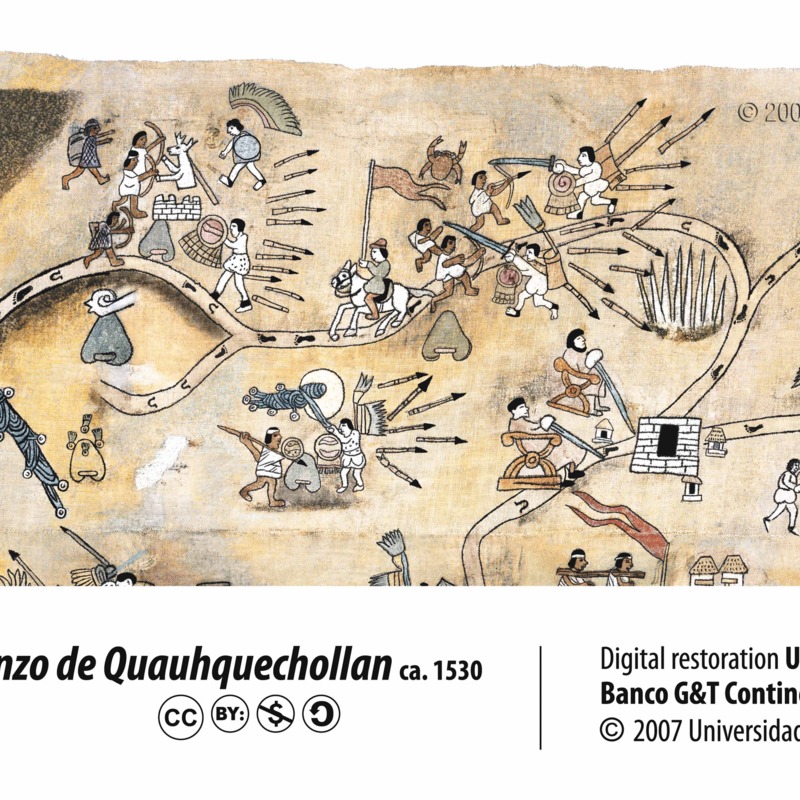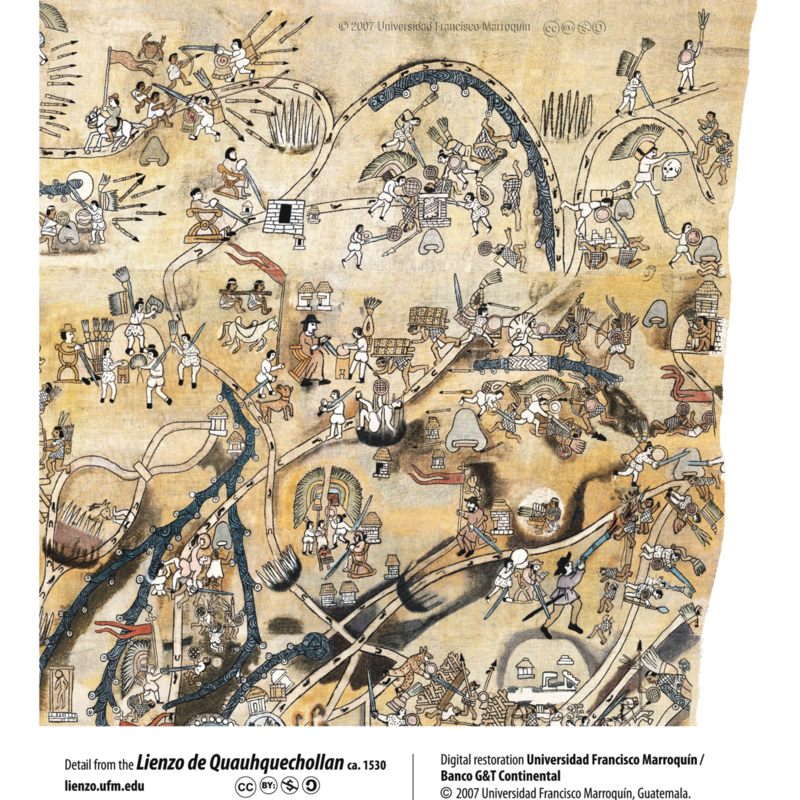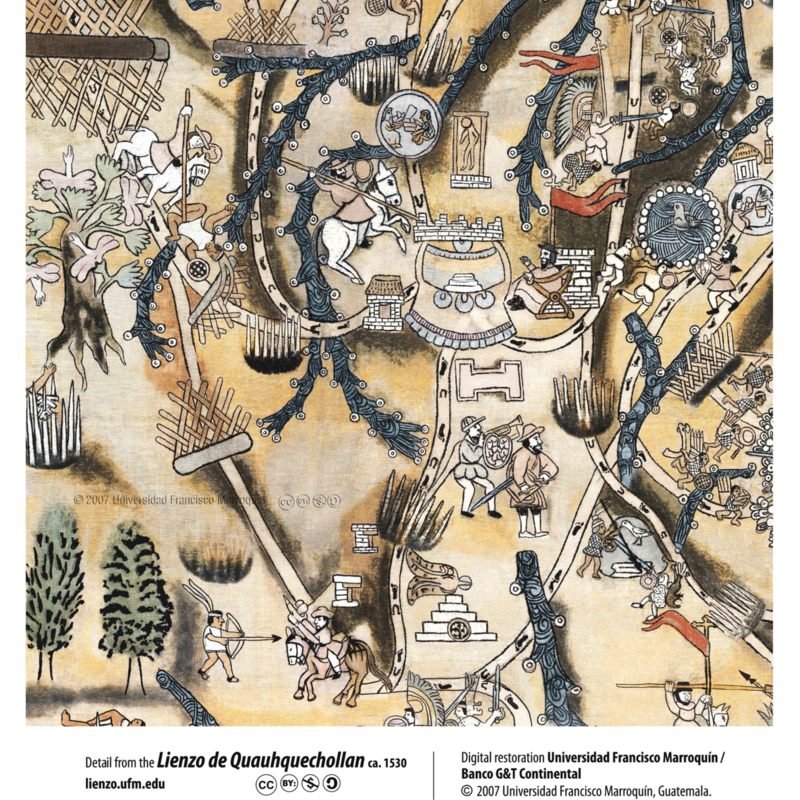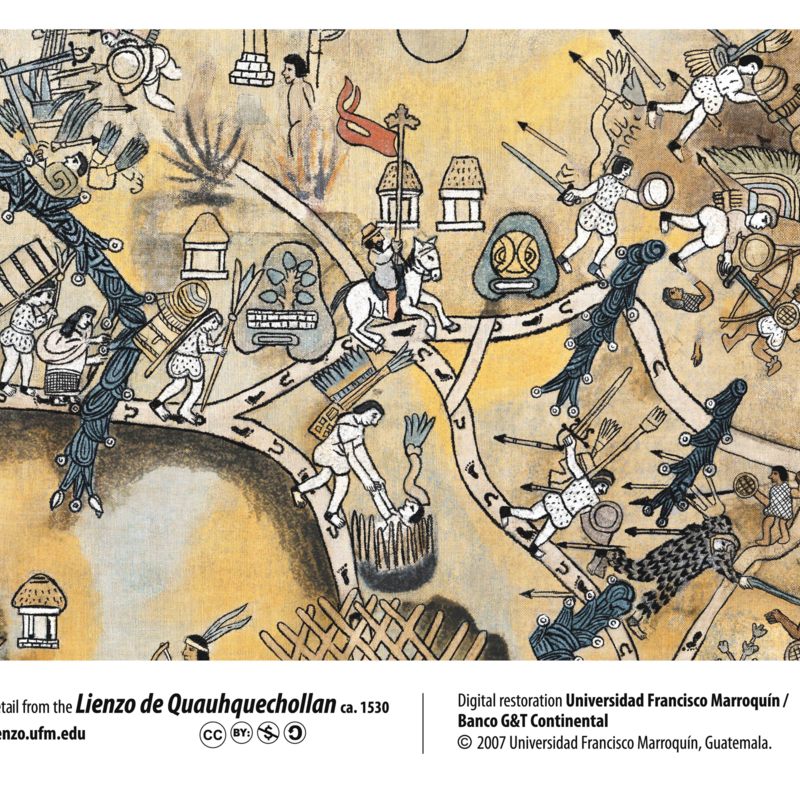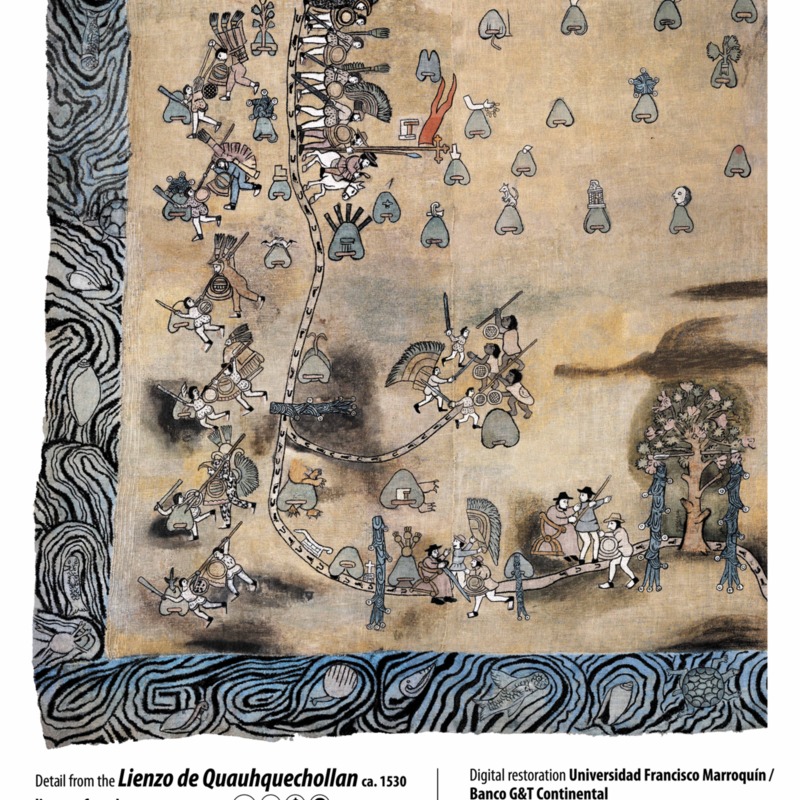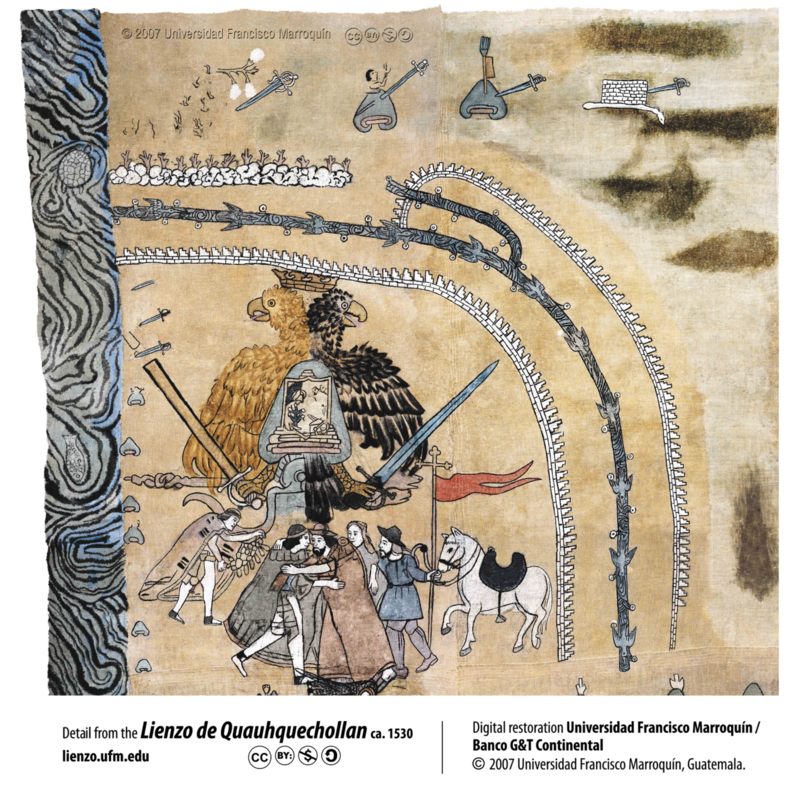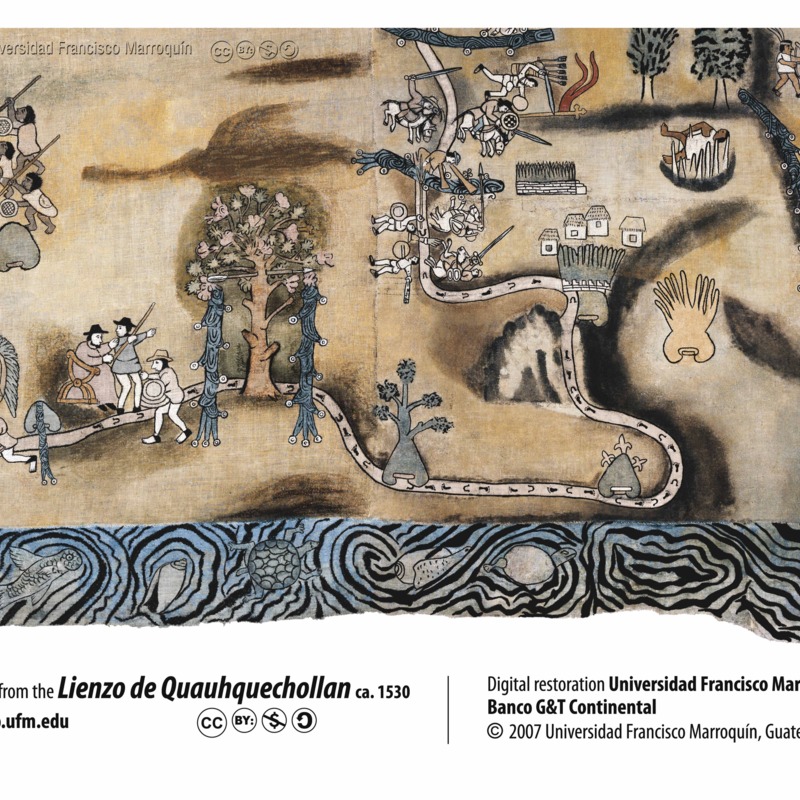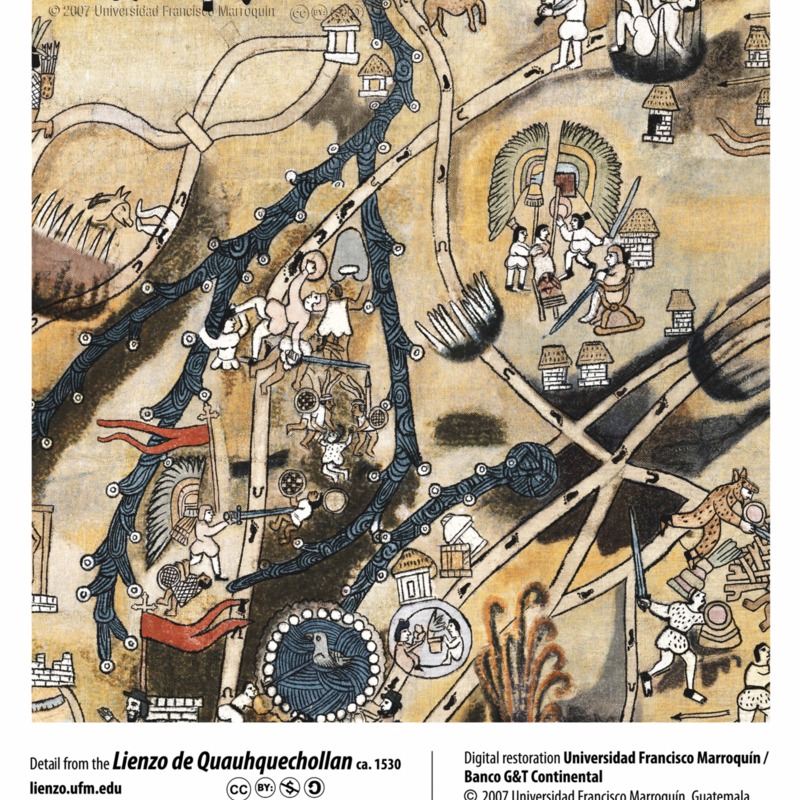Browse Items (8 total)
Indigenous Allies
It is now estimated that the army of Jorge de Alvarado that entered Guatemala in 1524 contained thousands of indigenous allies.
Conquest
From 1527 to 1529, Jorge de Alvarado and his Nahua allies were able to conquer most of what is now Guatemala. The success of the conquest is due in large part to the participation of the indigenous conquistadores from central Mexico who fought…
Tags: Conquest, Lienzo de Quauhquechollan, Nahua
More Fighting
In 1526, Pedro de Alvarado went to Spain to report to the King, and he sent his brother Jorge de Alvarado to Guatemala. In the Spring of 1527, Jorge de Alvarado entered Guatemala with a new Spanish army and 5,000 to 6,000 allies from Central Mexico.…
Tags: Fighting, Lienzo de Quauhquechollan, Nahua
Battles
Pedro de Alvarado and his army travelled to Guatemala by way of Oaxaca. Although Pedro de Alvarado conquered many communities in Guatemala during the battles of the 1523-1524 campaign, he did not gain control over the entire country.
Tags: Battles, Lienzo de Quauhquechollan, Nahua
Invasion
Cortés sent Pedro de Alvarado to Guatemala in December 1523 to subject the area to Spanish rule. Accompanying Alvarado were many Spanish soldiers (seen at the top of this image), but the bulk of the army was made up of indigenous warriors from…
Tags: Invasion, Lienzo de Quauhquechollan, Nahua
Alliance
Quauhquecholteca messengers met with Hernán Cortés to declare allegiance with the Spanish if Cortés would help them against the Mexica. The Mexica were defeated at Quauhquechollan in 1520 and the Spanish- Quauhquecholteca alliance was…
Tags: Alliance, Lienzo de Quauhquechollan, Nahua
Spaniards
When the Spanish entered the community of Quauhquechollan in Puebla, Mexico in 1519, the territory was part of the Mexica empire and had become a political and military frontier between the Mexica and their allies and the Tlaxcala and their allies,…
Tags: Lienzo de Quauhquechollan, Nahua, Spaniards
